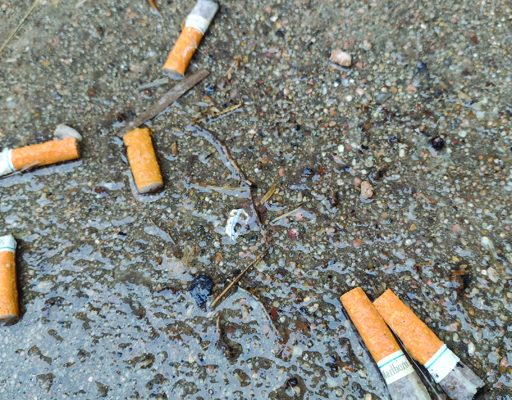Moving the contents of a house – or the Keep Alliance Beautiful office – is inevitably one lifesize Tetris challenge. We came across two heavy mystery boxes a week ago. Upon closer inspection the cardboard cubes contained many black, rectangular metal urns. About the same volume and shape as a quart milk carton, the containers are designed to hold scores of cigarette butts. Now, let’s find new homes for these ashtrays outside of the boxes. Anyone interested can stop by the recycling center at 107 ½ Cheyenne Ave. in Alliance or call our office at 308-762-1729 for information.
Cigarette butts are one of the most pervasive forms of litter worldwide. During the organization’s 2021 national convention, Randy Hartman, with Keep America Beautiful, said they are the, “No. 1 littered item in the world. Eighty-eight percent of litter is four inches or less.” After filling bags on cleanups from downtown Alliance to the Dam Road north of Hemingford and in between, I would agree. The small, smelly filters are more difficult than cans or bottles to grasp or even see.
Granted, there are local businesses and public places that have been proactive. Smoke-free campuses have cropped up in the last decade or so, other establishments encourage clean designated smoking areas. A range of urns, including decorative flower designs provided by KAB, can be found downtown. We are giving away our store of black boxes to fill the gaps.
Though our urns could be convenient at home, they may make a greater difference in habits on the job. Littering rates go down when there is a convenient place for the rubbish. Walk out the store’s back door and smoke. Hmmm, the boss never set out that bucket of sand she promised. Guess nobody cares where the butts go. Before long, four or five butts multiply amid the snow and sand. An urn mounted nearby could be the catalyst for employees. Walk a couple steps and the butt is in the box for later disposal.
Where I work, recycling is the goal whenever possible. However, the intent in giving away urns is reducing litter to promote cleaner communities. That’s not to say cigarette filters cannot be recycled. At the aforementioned conference, affiliates from around the U.S. gathered in Washington, D.C. A group from Keep South Carolina Beautiful described how they implemented a grant from Keep America Beautiful. The funds bought “butt bins” for their state affiliates. Featuring QR codes the bins are mapped. Organizers went out and talked to smokers for more effective placement. They collect then send the butts to TerraCycle to become new products. This recycling company has even partnered with Santa Fe Natural Tobacco Company to offer a free program, accepting cigarette waste.
In Keep Alliance Beautiful’s service area there has to first be a willingness to collect this type of litter. As the black boxes find new homes, perhaps we can all work to keep the butts off the ground and ultimately out of the landfill.

